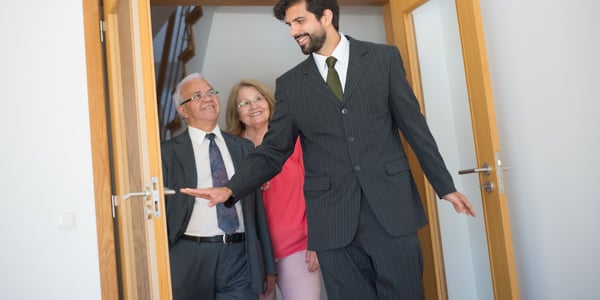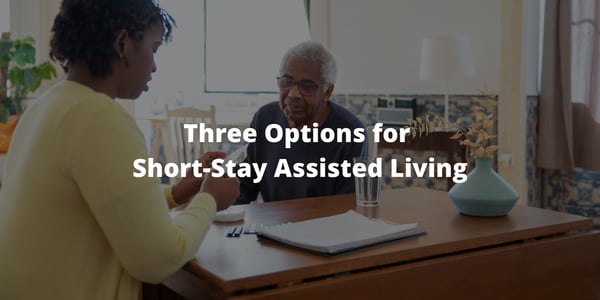Despite the tidal wave of Baby Boomers entering the 55+ age demographic, many aspects of...
Senior Loved One Moving In? How To Adapt Your Home for Care
It used to be pretty common to have grandparents living with family — a multigenerational arrangement that worked. However, this style of living has slowly fizzled out over the years. While privacy and preparing the home for different generations is undoubtedly something to consider, having your senior loved one live with you is also an extreme boon.
Want to learn more about how you can adapt and upgrade your home for senior-friendly living? Below, discover some easy tips for a seamless transition.
Bathroom Upgrades
Shower Bay reports a study by NewsUSA that revealed that more than a third of adults over the age of 65 slip and fall each year, and over 80% of those falls occur in the bathroom. The reason for this is simple: as we age, our strength and balance reduce, and bathrooms end up rendered the most dangerous in the house.
An absolute essential to prevent any mishaps is installing grab bars in the bathing and toileting area. These will provide your loved ones the extra support and stability they require. An elevated toilet seat with arms will also be helpful if your loved one is unsteady on their feet or overweight. Watch out for bathroom surfaces as well. Any slick surfaces will combine moisture to create slippery surfaces that provide a hard landing ground. Be sure to place anti-slip or grip mats to offer extra support on these surfaces as well.
Living Room Upgrades
Your living room is where your loved ones will spend most of their time hanging out with family. You will need to ensure they feel comfortable and safe in this new space. Be sure to make the following quick upgrades to your common areas:
- Add more lighting
A well-lit room will ensure that your loved one has clear visibility, which will be imperative to prevent any mishaps. - Expand entryways
If your loved one uses a mobility device, you will need to ensure all your passageways are wide enough for easy access. 1800wheelchair reports that a minimum width of 32 inches should be adhered to for easier circulation. - Check alarms
Ensure your fire and carbon monoxide alarms are serviced to ensure they're in optimal working condition. - Declutter
Having minimal clutter will be critical in keeping your loved one safe. More belongings strewn around means increased tripping, slipping, and falling opportunities. - Clean regularly
It's important that your loved one's home is cleaned and sanitized regularly to reduce the risk of infection and illness. Avoid the strong chemicals found in stores, though, and use common household ingredients instead. For example, vinegar, baking soda, vodka, and tea tree oil can all be used to effectively clean and sanitize your space.
These upgrades are mostly easily DIYable too! But, incredibly, such minor upgrades can make a significant difference in your senior's life.
Bedroom Upgrades
Bed rails are a no-brainer as they make getting in and out of bed much more accessible. You can also opt for an upholstered bed frame instead of a metal or wood one for increased comfort. Finally, have well-lit nightstands free of clutter at the ready, so your loved ones can carry out their bedside routines with ease.
Paying for Your Upgrades
Worried about how you're going to finance so many upgrades? After all, updating your home doesn't come cheap. One way to make the expenses manageable is to take out a loan. Many homeowners also opt for refinancing their mortgage; this can reduce your monthly mortgage payment. If you have a VA loan, you can quickly estimate your new mortgage payment after refinancing. The VA IRRRL process is streamlined to make it both quick and inexpensive to refinance your mortgage.
Another option is to start a side business to generate extra funds to put toward an upgrade. There are many businesses that can be run from home and that have low startup costs. For example, you could start a pet-sitting business, offer tutoring, or become a virtual assistant. Not only will this provide you with extra income to help offset the cost of upgrades, but it will also give you something to do outside of the house.
Learning More About Caregiving
Depending on your loved one's needs, you may want additional training to ensure you are doing what you can as a caregiver. And if caring for others is something you enjoy, you could turn this into a career over time. In that case, this is an excellent option to consider. You can pursue a bachelor's degree in nursing or healthcare. Not only will it help you better address your loved one's medical needs, but it can set you up for a promising career when you are ready to move on.
Help Your Loved One Settle In
Multigenerational living can be a fantastic bonding experience. It is also a great way to give back to your parents, relatives, or older friends who have given you so much in life. Upgrading your home to accommodate their needs is essential to ensure they live a comfortable and self-sufficient life. Together, you can care for your loved one's needs in a familiar, comfortable place.
Learn more about preparing to move on our Housing Resources page!






